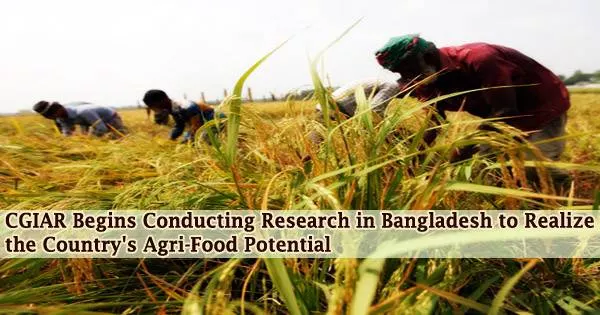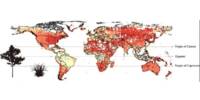Over the next three years, the portfolio is anticipated to have a favorable effect on the livelihoods, productivity, and health of millions of farmers, fishers, and families who are food insecure.
The Consultative Group for International Agricultural Research, widely known as CGIAR, in collaboration with the Bangladesh Government, has launched its research portfolio of advanced scientific innovations to help unlock the potential of the country’s agri-food system, said a press release.
It introduced a total of 12 multi-disciplinary initiatives under the research portfolio, such as “Transforming Agri-food Systems”, “Resilient Cities” and “Sustainable Intensification of Mixed Farming Systems.”
Agriculture Minister Mohammad Abdur Razzaque, Livestock Minister SM Rezaul Karim, and CGIAR Regional Director for South Asia Temina Lalani-Shariff were present, among others, at the launching event that took place in the capital.
“Today’s meeting has been highly constructive. It has taken our collaboration to the next level so that we can meet the increasingly complex environmental and nutrition challenges that Bangladesh is facing,” Temina Lalani-Shariff said.
“I would like to warmly thank our partners in Bangladesh and South Asia,” she added.
CGIAR is a global research partnership for a food-secure future. The International Water Management Institute, the International Rice Research Institute, the International Livestock Research Institute, The Alliance of Bioversity International and International Centre for Tropical Agriculture, and the International Maize and Wheat Improvement Centre have made up the CGIAR Centres in Bangladesh, the release reads.
The CGIAR research portfolio is expected to have a positive impact on livelihoods, productivity, and health of millions of smallholder farmers, indigenous fishers, and food-insecure families over the next three years, it added.
“On behalf of the government, I would like to thank CGIAR and all the centres operating in Bangladesh for the initiative. It will focus on delivering science and innovation to advance the transformation of food, land, and water systems in a climate crisis which is very important for Bangladesh,” Mohammad Abdur Razzaque said.
“Food safety should be a shared responsibility among the government, private sector, producers and consumers. We all must work relentlessly to address the food security challenges. We need to strengthen institutional collaboration and create knowledge and experience related to agriculture research and development,” added SM Rezaul Karim.
















